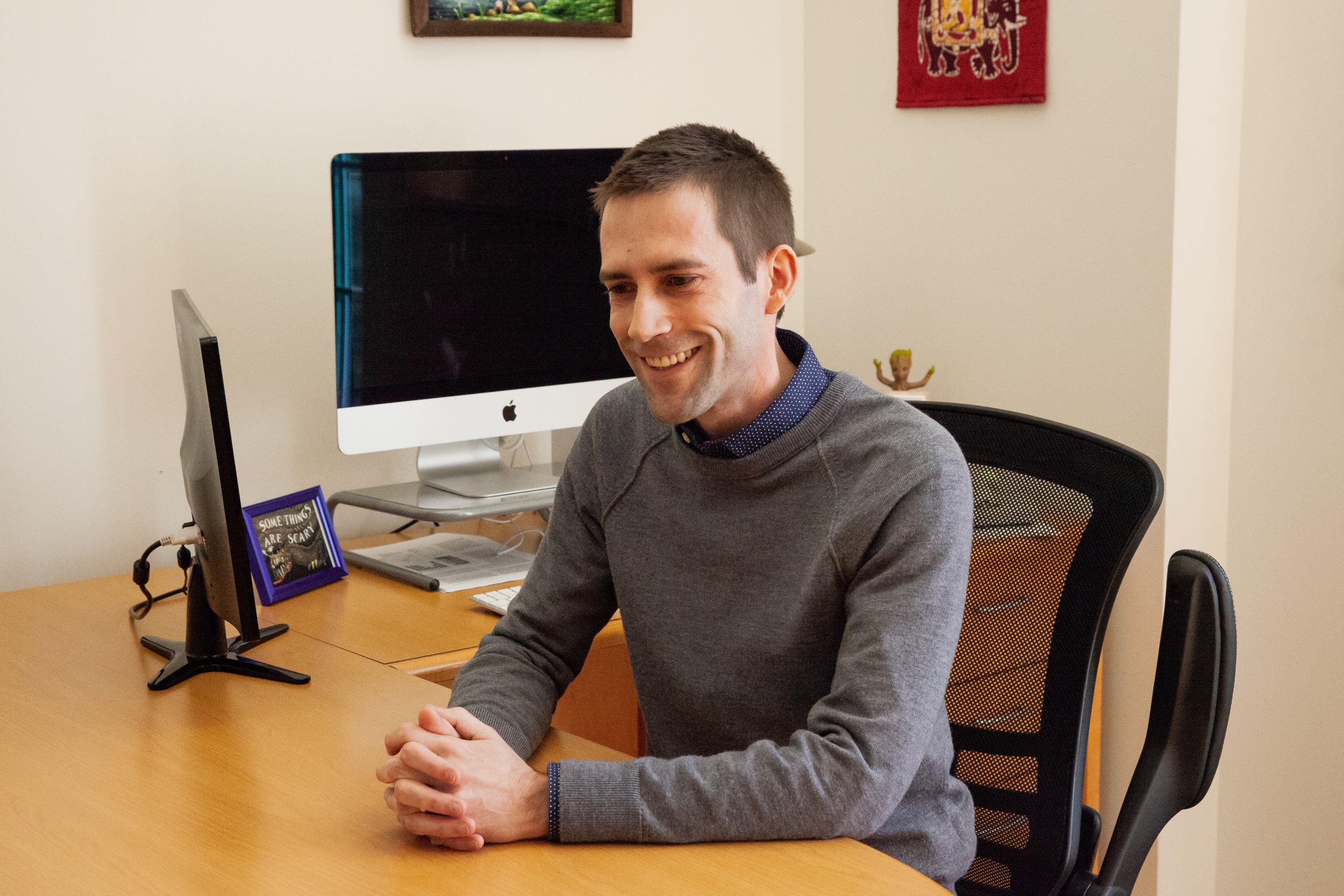
After completing a 5-year post doc in Nashville working in pediatric and infectious diseases, Clint Smith was ready to shift to teaching. Although he enjoyed the medical center, he was excited to move from primarily intensive research to mentorship.
“I was able to work with a lot of students in labs,” Smith said, “And I felt like I had knack for explaining complex biological things. Sewanee was such a great choice for me. It has all the things I loved combined. I can still do research, but the motivation is different. Research for research sake was one thing, but now that I get to do that in the context of building relationships, I feel so much more fulfilled.”
Smith understands that diversity is a means for all of our stories to overlap—to allow students and faculty to relate in ways that aren’t just intellectually driven.
“We tend to think of education as a removed sphere—a place where students learn and study—where outside influence doesn’t have a real effect,” Smith says. “But in actuality, so many things affect students. I grew up in a small, impoverished town in Arkansas near the National Center for Toxicological Research. This brought in such a diverse population to our schools. I met so many different types of people there, and that’s when I began to learn that our narrative is just one of many. It helped me—in a homogenous town—to not extrapolate my own narrative & experience and just copy/paste it on others. That realization was profoundly helpful.”
Smith has a heart for the strength that comes with diversity, but he understands that it’s not all numerical.
“We need a variety of different percentages in our student body,” Smith says, “but that’s not enough. We need social spaces where students can interact. You can have diverse student body, but they need to be encouraged to come together, to be challenged, to listen, and reflect on different stories. By building a student commons space, Sewanee is saying—stone by stone—that we value this place. It’s an infrastructure that promotes not only diversity on campus but making sure we take care of that diversity once it is here.”

